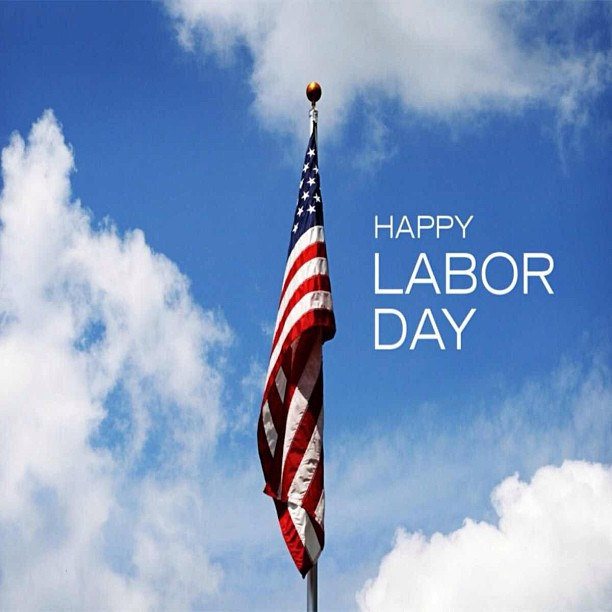
The HSHSL wishes you a happy Labor Day weekend! We’ll be closed from Saturday, Aug. 31 through Monday, Sept. 2. Regular fall hours resume on Tuesday, Sept. 3.

601 West Lombard Street
Baltimore MD 21201-1512
Reference: 410-706-7996
Circulation: 410-706-7928

The HSHSL wishes you a happy Labor Day weekend! We’ll be closed from Saturday, Aug. 31 through Monday, Sept. 2. Regular fall hours resume on Tuesday, Sept. 3.
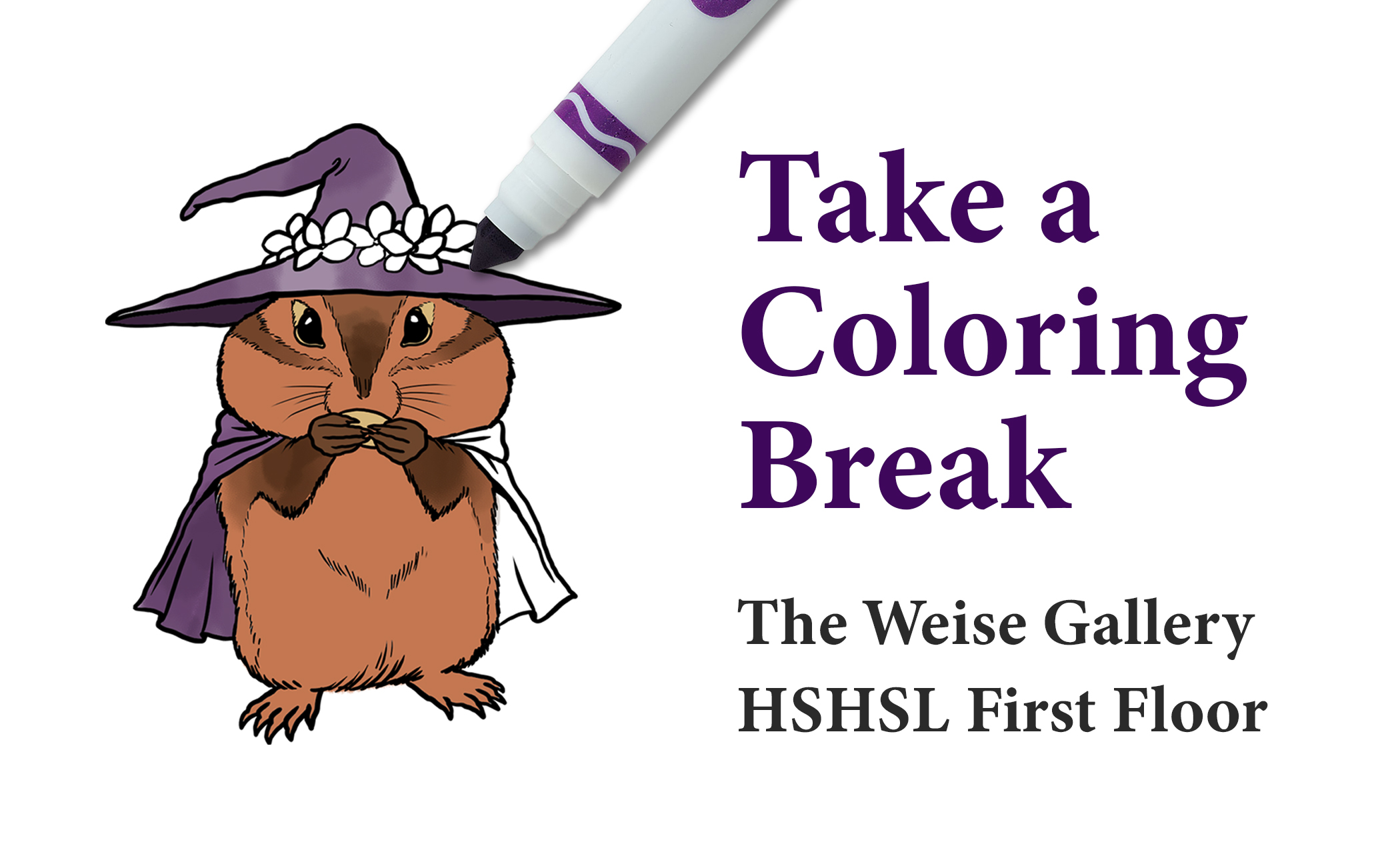
Fall is a busy time for new and returning students. Take a coloring break in HSHSL’s Weise Gallery on the first floor. This year’s coloring wall theme is “The Enchanted Pumpkin Patch”. Grab some markers and color in pumpkins, gnomes, fairies, snails, chipmunks, and more.
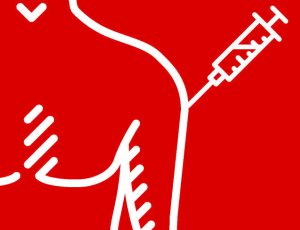 Returning for the 7th year, the HSHSL and School of Pharmacy is hosting a Vaccination Clinic on Thursday, October 10 from 9:00 am to 5:00 pm in the Weise Gallery on the first floor of the Library. The clinic will include vaccines for flu (including high dose flu shots for those above 65 years of age), COVID-19, Pneumonia, RSV, shingles, and Tdap (tetanus, diphtheria, and pertussis). Keep an eye out for additional information and to sign up for an appointment.
Returning for the 7th year, the HSHSL and School of Pharmacy is hosting a Vaccination Clinic on Thursday, October 10 from 9:00 am to 5:00 pm in the Weise Gallery on the first floor of the Library. The clinic will include vaccines for flu (including high dose flu shots for those above 65 years of age), COVID-19, Pneumonia, RSV, shingles, and Tdap (tetanus, diphtheria, and pertussis). Keep an eye out for additional information and to sign up for an appointment.
In addition to this year’s clinic, the UMSOP and HSHSL are hosting an educational event dispelling the myths around vaccinations. The event will take place on Wednesday, October 2 from 1:00 pm to 2:30 pm. Additional information on speakers and event location will be forthcoming.
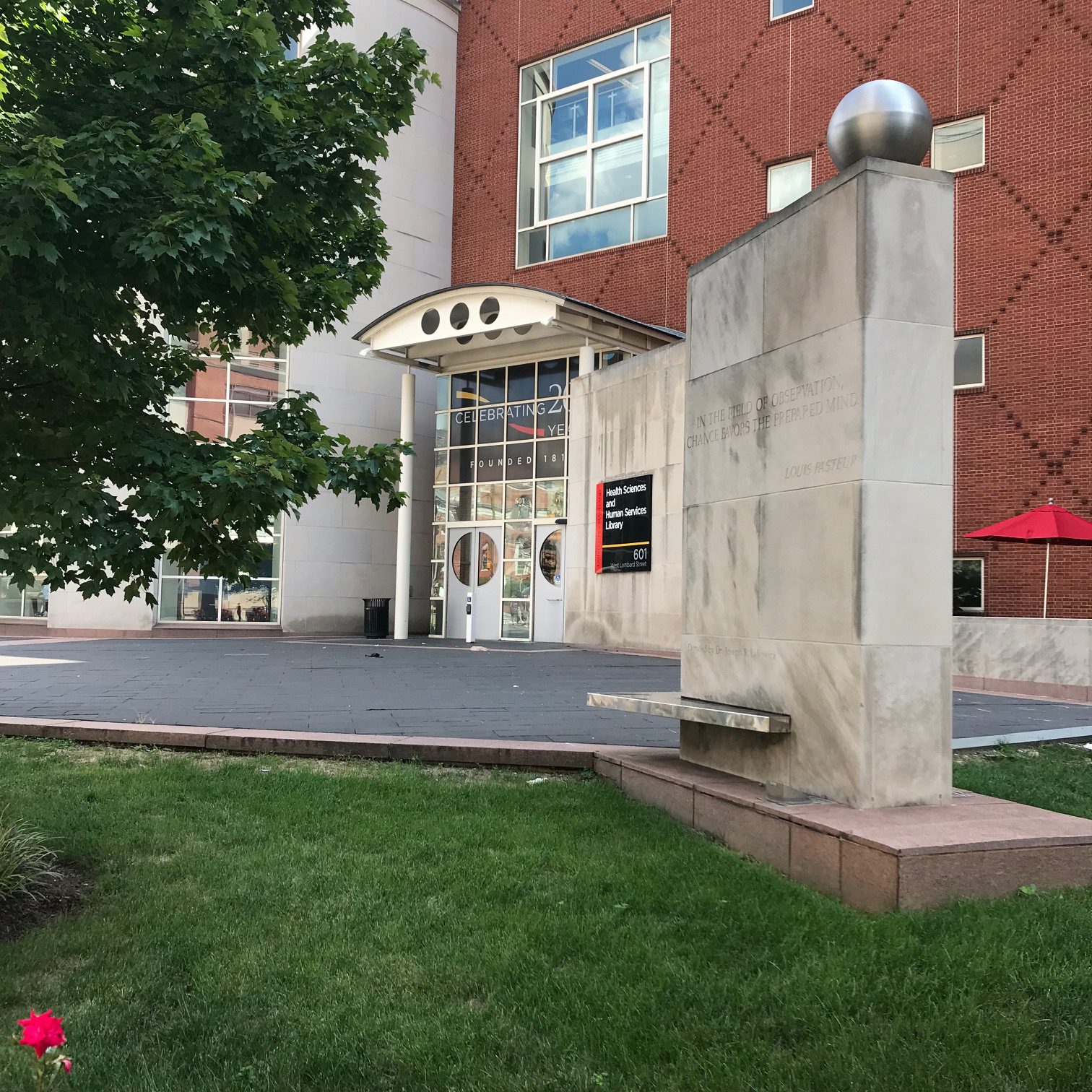
Apply to join the inaugural Health Sciences and Human Services Library (HSHSL) Board. Launching in fall 2024, this group of student representatives will gain valuable insights into library services, spaces and resources while also providing feedback that will impact the library for years to come. The HSHSL seeks two students from each of the health or human services schools (dentistry, medicine, nursing, pharmacy, social work and graduate studies) to apply to join this advisory board for the year.
What’s involved?
What you get:
Question?
Please contact HSHSL@umaryland.edu with any questions or concerns
Applications are due by Labor Day 2024: bit.ly/HSHSL-SAB
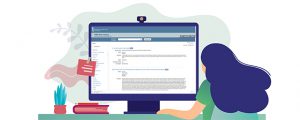
Every month, we will be highlighting new datasets added to the UMB Data Catalog. The UMB Data Catalog facilitates discovery of data by providing a searchable and browsable collection of records describing datasets generated by UMB researchers. Sharing a record of your data in the Catalog is also a great way to demonstrate compliance with data sharing policies!
These latest records showcase data on opioid treatment availability, COVID-19 misinformation on TikTok, and immune response in HIV-infected patients.
Congrats to our UMB researchers on these publications!
Title: County-level factors associated with a mismatch between opioid overdose mortality and availability of opioid treatment facilities
Description: Identifies characteristics of United States (US) counties with high rates of opioid overdose mortality and low rates of opioid treatment facilities.
Authors: John G. Rizk, Jannat Saini, Kyungha Kim, Uzma Pathan, Danya M. Qato
URL: https://datacatalog.hshsl.umaryland.edu/dataset/224
Title: #Coronavirus on TikTok: user engagement with misinformation as a potential threat to public health behavior
Description: Examines factors associated with user engagement with COVID-related misinformation on the social media platform, TikTok.
Authors: Jonathan D. Baghdadi, K.C. Coffey, Rachael Belcher, James Frisbie, Naeemul Hassan, Danielle Sim, Rena D. Malik
URL: https://datacatalog.hshsl.umaryland.edu/dataset/225
Title: IFNa induces CCR5 in CD4+ T cells of HIV patients causing pathogenic elevation
Description: Investigates whether elevated circulating interferon-alpha (IFNα) promotes widespread immune cell alterations and persists post-therapy, furthering understanding of why non-elite controller (EC) HIV patients continue to need treatment.
Authors: Hélène Le Buanec, Valérie Schiavon, Marine Merandet, Alexandre How-Kit, Hongshuo Song, David Bergerat, Céline Fombellida-Lopez, Armand Bensussan, Jean-David Bouaziz, Arsène Burny, Gilles Darcis, Mohammad M. Sajadi, Shyamasundaran Kottilil, Daniel Zagury, Robert C. Gallo
URL: https://datacatalog.hshsl.umaryland.edu/dataset/226
Thanks to Metadata Librarian, Eva Greitzer for creating and compiling these records!
Want to see your data listed in the UMB Data Catalog? Submit this form to get the process started.
Questions? Email us at data@hshsl.umaryland.edu.
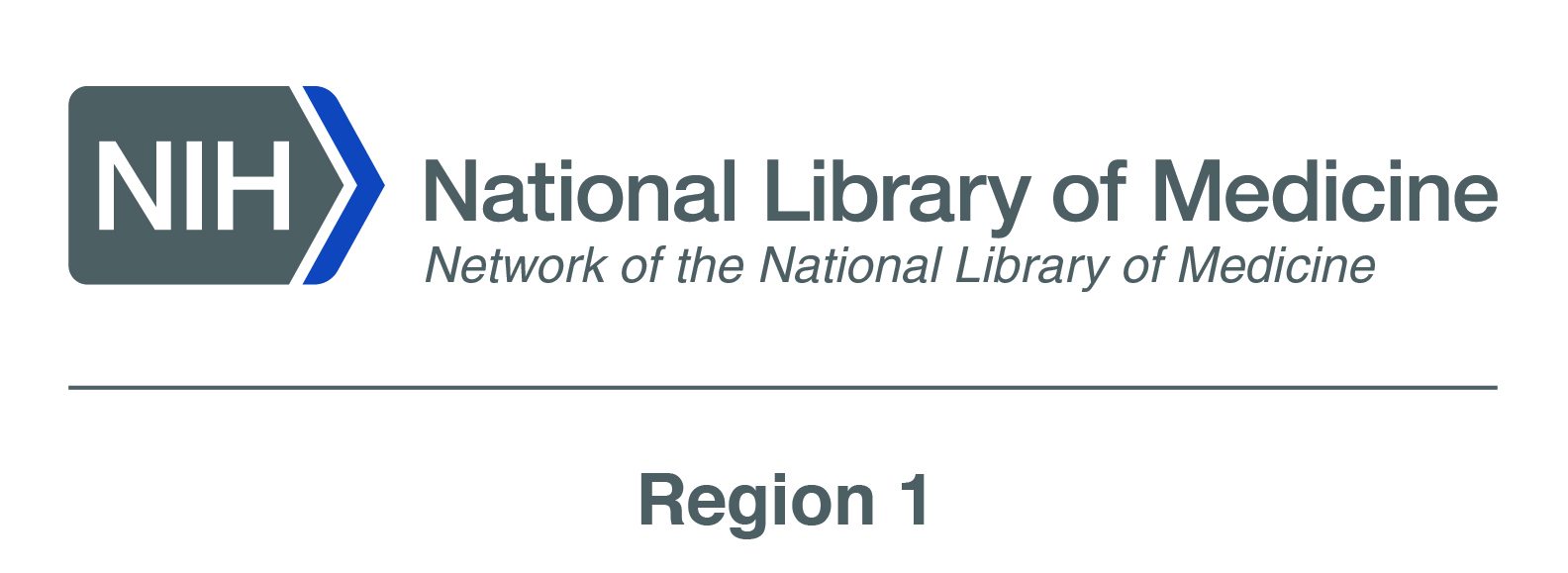
The National Library of Medicine (NLM) seeks new ideas to help improve access to health information made available via the Network of the National Library of Medicine (NNLM). The HSHSL is the Regional Medical Library for the NNLM Region 1.
This Request for Information (RFI) offers health sciences and public libraries, health professionals, researchers, public health workers, community organizations, the public, or any other interested party the opportunity to provide information about how the NLM can best provide better access to biomedical information and health information through the NNLM going forward.
Response Due Date: 08/30/2024
Any individual or organization is welcome to submit a response.
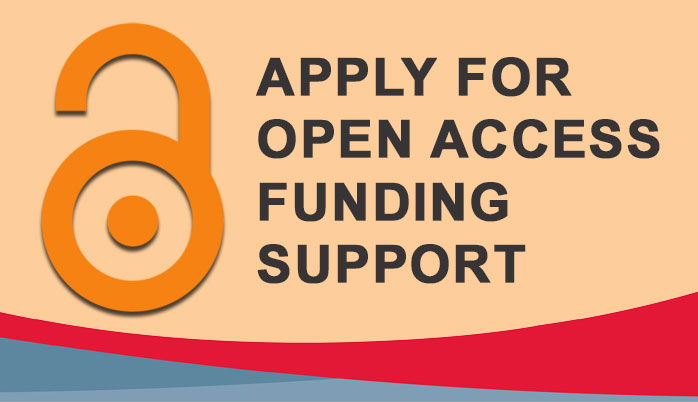
The HSHSL’s Open Access Publishing Fund is designed to improve access to research produced at the University of Maryland, Baltimore and:
The fund will reimburse 50% of the cost of article processing charges for Open Access (OA) journals up to a maximum of $3,000 for early-career researchers. The fund has a limited budget. Reimbursements will be made on a first-come, first-served basis until funds are exhausted.
Maximum Levels of Reimbursement
Who is eligible?
This fund is designed to promote open-access publication by early-career researchers. It is open to the following individuals at UMB:
Students must be enrolled, and faculty members must be employed at UMB at the time of application.
What articles are covered?
Reimbursement is available for article processing fees in open access journals, which are journals that do not charge a fee for access to their content. There are various types of OA models. This fund covers fees only for journals that are fully OA. Eligible journals include the following:
Journals with a hybrid open-access model or delayed open-access model are not eligible. Subscription-based journals that charge a fee, sometimes called an “author’s choice” or “open choice” fee, to make single articles available by open access are also not eligible. If you are unsure as to whether or not a particular journal is eligible please contact Steven Douglas prior to submitting an article for publication.
Reimbursement will cover only direct costs for open access publication (not the cost of reprints, color illustration fees, non-OA page charges, web hosting for self-archiving, etc.).
Procedures
The applicant must be currently UMB-affiliated and listed as the first author of the article. To apply, complete the application form.
Articles must include a statement of acknowledgement such as, “Partial funding for open access was provided by the University of Maryland Health Sciences and Human Services Library’s Open Access Fund.”
Reimbursement will be made after the article has been accepted for publication and the submission fee has been paid. At this time we are only able to make reimbursements to UMB Departments. Authors should pay the full amount of the APC with department funding then submit an invoice and department account number for reimbursement. We are unable to reimburse individuals or UMB Foundation accounts.
The applicant must submit either the author’s final version or the published version of the funded article for inclusion in the UMB Digital Archive.
Contact Steven Douglas if you have any questions about the Open Access Publishing Fund

Many of the full-text resources in Google Scholar are only available to subscribing institutions. By selecting the HSHSL as a library link, items owned by the Library will have the Find It @ HSHSL link as part of the citation. This link will lead to full-text, when available.

Off-site Access
Access to HS/HSL e-resources from off-site still requires a UMID and password.
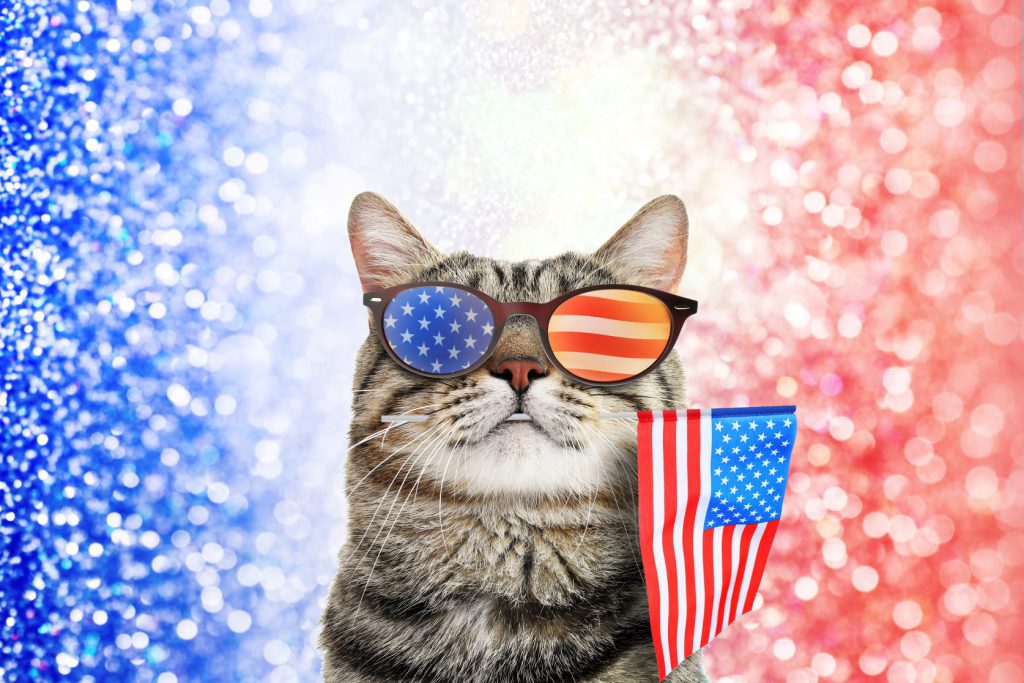
The HSHSL will be closed Thursday, July 4 – Sunday, July 7 for the Independence Day holiday.
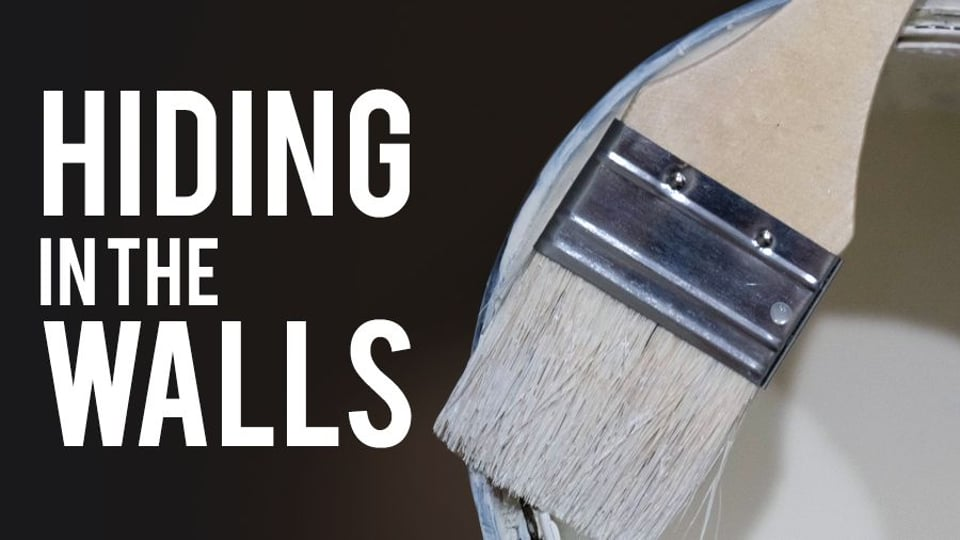
Join the HSHSL for a screening and group discussion of “Hiding in the Walls,” a documentary that explores the fraught history of lead’s government-mandated use in low-income housing in Baltimore. The film delves into how lead poisoning became an accepted norm in urban America and follows adult survivors on a mission to reclaim the narrative.
The film will be shown on July 10 at noon on the HSHSL’s second floor, followed by a discussion from 1 – 1:30 p.m. Feel free to view the film in advance and join us for the Q&A, or come for the entire event. The documentary is free to view using your UMid and password or public library card to log in. Space is limited, so registration is required.
While you are in the library enjoy our exhibit, This Lead is Killing Us: A History of Citizens Fighting Lead Poisoning in Their Communities. The National Library of Medicine produced this exhibition and companion website.